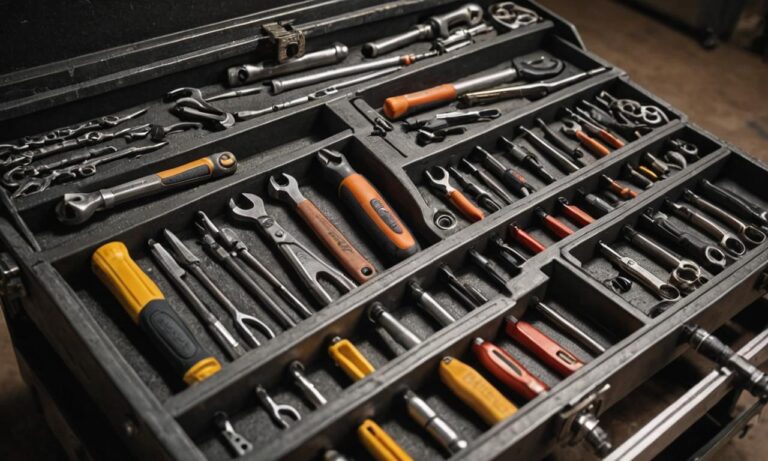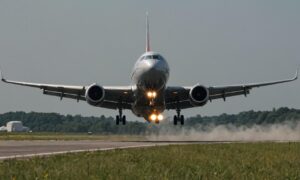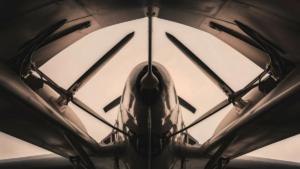Embarking on a career as an aircraft mechanic can be an exciting and rewarding journey. As an aircraft mechanic, you play a crucial role in ensuring the safety and functionality of aircraft, making it a career path that demands precision, skill, and dedication. In this comprehensive guide, we’ll delve into the steps you need to take to become an aircraft mechanic.
Education and Training
One of the primary requirements to become an aircraft mechanic is obtaining the necessary education and training. Typically, this involves completing a Federal Aviation Administration (FAA)-approved aviation maintenance technician program. These programs are offered by various technical schools, community colleges, and aviation maintenance schools.
During your training, you’ll learn about aircraft systems, components, maintenance procedures, and safety regulations. It’s essential to choose a reputable program that provides hands-on experience and prepares you for the FAA certification exams.
FAA Certification
Once you’ve completed your education and training program, the next step is to obtain FAA certification. This involves passing a series of written, oral, and practical exams administered by the FAA. There are three main types of FAA certifications for aircraft mechanics:
- Airframe Mechanic Certificate
- Powerplant Mechanic Certificate
- Aviation Maintenance Technician Certificate (Both Airframe and Powerplant)
Each certification requires demonstrating proficiency in specific areas related to aircraft maintenance and repair. Once you’ve obtained your FAA certification, you’ll be qualified to work on various types of aircraft.
Gain Experience
While education and certification are essential, gaining hands-on experience is equally crucial for becoming a proficient aircraft mechanic. Consider seeking employment opportunities as an apprentice or entry-level mechanic at aviation maintenance facilities, airlines, or aerospace companies.
Working alongside experienced mechanics will provide you with valuable insight and practical skills that cannot be taught in a classroom. Take advantage of every opportunity to learn and expand your knowledge of aircraft systems and maintenance procedures.
Continuing Education and Specialization
The field of aviation maintenance is constantly evolving with advancements in technology and aircraft design. To stay competitive and advance your career, consider pursuing continuing education and specialization in specific areas of aircraft maintenance.
There are various specialized certifications and training programs available for aircraft mechanics, such as avionics technician, structural repair technician, or aircraft inspector. By acquiring additional skills and certifications, you can enhance your expertise and open up new career opportunities within the aviation industry.
Adhere to Safety Regulations
As an aircraft mechanic, safety should always be your top priority. It’s essential to adhere to all safety regulations and procedures outlined by the FAA and other regulatory bodies. This includes following proper maintenance protocols, using the correct tools and equipment, and conducting thorough inspections.
By prioritizing safety in your work, you not only protect yourself and your colleagues but also contribute to the overall safety and integrity of the aircraft you maintain.
Becoming an aircraft mechanic requires dedication, education, and practical experience. By following these steps and continuously striving for excellence, you can embark on a fulfilling career in aviation maintenance. Remember to stay updated on industry developments, prioritize safety, and never stop learning.
Tools and Equipment
Understanding and proficiently using the various tools and equipment are fundamental skills for an aircraft mechanic. These tools range from basic wrenches and screwdrivers to specialized equipment for specific tasks such as engine diagnostics or avionics testing.
Furthermore, familiarity with precision measuring instruments like micrometers and calipers is crucial for ensuring accuracy in aircraft maintenance and repair.
Tool Organization
Proper organization of tools not only enhances efficiency but also reduces the risk of errors or accidents. Investing in a quality toolbox or tool chest with designated compartments for each tool can streamline workflow and facilitate easy access during maintenance tasks.
Equipment Maintenance
Regular maintenance and calibration of equipment are essential to ensure accurate readings and reliable performance. Establishing a maintenance schedule and adhering to manufacturer recommendations can prolong the lifespan of equipment and minimize the risk of malfunctions during critical tasks.
Frequently Asked Questions
| Question | Answer |
|---|---|
| Is prior experience required to enroll in an aviation maintenance technician program? | No, most programs accept students with varying levels of experience, from beginners to those with prior aviation or mechanical backgrounds. |
| How long does it typically take to complete an aviation maintenance technician program? | The duration varies depending on the program and whether it’s full-time or part-time, but it generally ranges from 18 months to 2 years. |
| What are the career prospects for aircraft mechanics? | Aircraft mechanics are in demand globally, especially with the continuous growth of the aviation industry. Opportunities exist in airlines, maintenance facilities, government agencies, and aerospace companies. |
| Can aircraft mechanics specialize in specific types of aircraft? | Yes, after gaining experience and additional certifications, aircraft mechanics can specialize in areas such as commercial jets, helicopters, military aircraft, or private planes. |
Additional Training Resources
Aside from formal education and certification programs, there are numerous online resources, workshops, and seminars available for aircraft mechanics to further enhance their skills and knowledge. These resources cover a wide range of topics, from advanced troubleshooting techniques to emerging technologies in aviation maintenance.
Professional Networking
Building a strong professional network within the aviation industry can provide valuable opportunities for career advancement, mentorship, and staying updated on industry trends. Attend industry events, join professional organizations, and connect with fellow aircraft mechanics and industry professionals through online forums or social media platforms.






